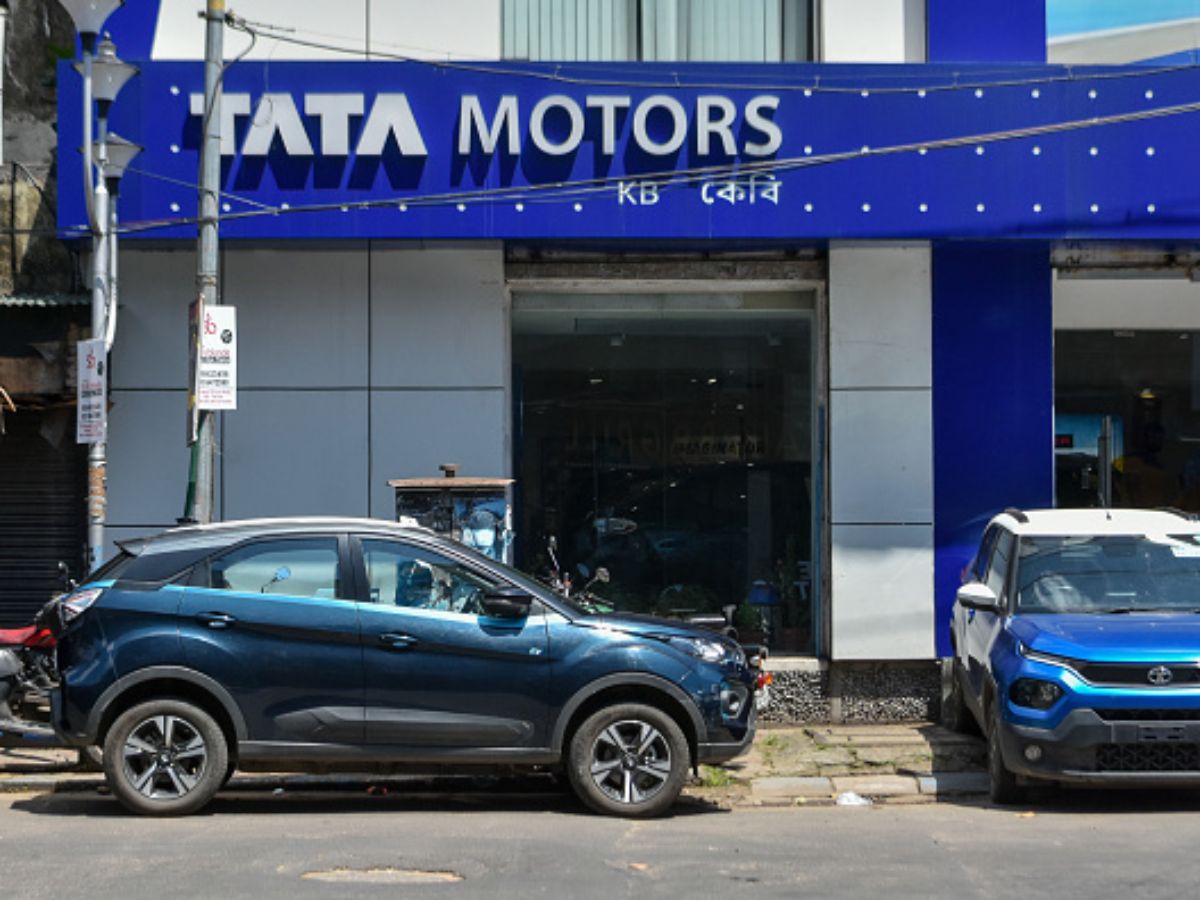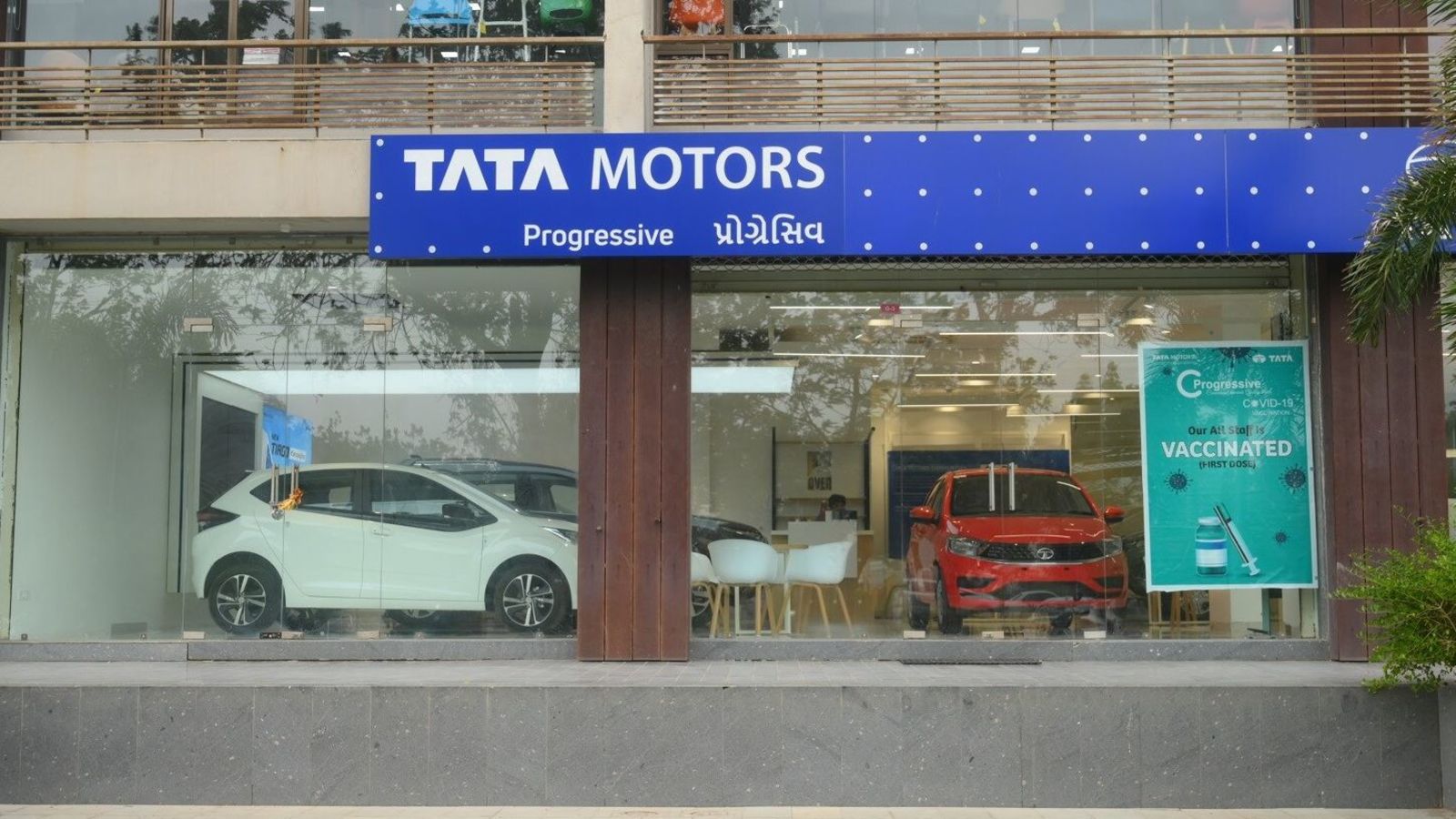Tata Motors Board Proposes Conversion of DVR Shares to Ordinary Shares in 2023
Along with its results, the business said today that, following the implementation of the Scheme, it will issue 7 fully paid-up new ordinary shares having a face value of INR 2 for every 10 “A” ordinary shares with an INR 2 face value. The ‘A’ ordinary shares will be reduced in value and cancelled in exchange for this issue.
The corporation will create a trust before the start of the Scheme to simplify the transfer of consideration for the reduction of the “A” Ordinary Shares. Following the terms of the Scheme, this trust will accept the New Ordinary Shares from the firm on behalf of the pertinent shareholders. The trust shall distribute the remaining New Ordinary Shares to the appropriate owners following the rules of the Scheme after meeting particular duties, such as taxes and other acts stipulated in the Scheme.

The Board of Tata Motors Ltd. has authorised a Scheme of Arrangement for the capital reduction of the “A” Ordinary shares and the issuance of Ordinary shares in exchange for the reduction. The capital reduction consideration equates to a 23% premium1 over the price of the class ‘A’ ordinary share.
As a result, there will be a 4.2% decrease in the number of existing equity shares, adding value for all owners.
All traded equity instruments of Tata Motors will be streamlined and consolidated into Ordinary Shares listed exclusively on NSE and BSE as a result of the discontinuation of the ADS programme and the proposed scheme for capital reduction of “A” Ordinary shares.

The aforementioned deal needs shareholder and regulatory approval.
25 July 2023, Mumbai: Tata Motors Ltd. (“TML”)) now has two classes of listed equity instruments, namely Ordinary Shares and ‘A’ Ordinary Shares, following the conclusion of the delisting of the American Depository Shares from the New York Stock Exchange as of January 23, 2023.
The ‘A’ Ordinary Shares have five percentage points more dividend rights and one-tenth the voting power of Ordinary Shares. The Board of Directors of TML today adopted a Scheme of Arrangement (“Scheme”) for the cancellation of “A” Ordinary Shares and the issuance of 7 Ordinary Shares for every 10 “A” Ordinary Shares as consideration (“Capital Reduction Consideration”). This will simplify the capital structure even further.
The ‘A’ Ordinary shares were initially issued by TML in 2008, and then again in a QIP in 2010 and a rights issue in 2015. Since then, restrictions on the issuing of these securities with differential voting rights have been put in place, and TML is still the only major listed corporation holding one of these securities. Currently, the Ordinary Shares trade for 43% less than the ‘A’ Ordinary Shares. The capital reduction consideration entails a 23% premium1 over the closing share price of the ‘A’ Ordinary shares the day before, which translates to a 30% discount over the price of an Ordinary Share and is substantially below its historical norms. The Scheme will result in a 4.2% decrease in the number of outstanding equity shares, adding value for all shareholders.

The Plan also calls for the establishment of a Trust, with a neutral third party serving as the Trustee, to carry out the numerous steps necessary to give the Plan legal force. Following the payment of any necessary taxes, the Trust will receive the Ordinary Shares that TML has issued to the holders of Class A Ordinary Shares. It will then issue the Class A Ordinary Shares to the owners of Class A Ordinary Shares on a “net” basis under the Capital Reduction Consideration.
The Scheme requires shareholder and regulatory approvals. Citigroup and Axis Capital serve as fairness opinion providers for the ‘A’ Ordinary and Ordinary shareholders, respectively, while PWC serves as the independent registered valuer for the transaction. TML’s legal counsel for the deal is Cyril Amarchand Mangaldas.
The Fairness Opinion for this transaction was offered by Axis Capital, India’s Preferred Investment Banking & Institutional Equities Partner. The Fairness Opinion on the Tata Motors merger is provided by Axis Capital.
Tata Motors, a leading player in the Indian automobile industry and part of the renowned Tata Group has proposed a new move in a bid to simplify its capital structure and improve corporate governance. In a significant development, the board of Tata Motors has put forth a proposal to convert its Differential Voting Rights (DVR) shares into ordinary equity shares.
Before delving into the implications of this move, let’s first understand what DVR shares are. DVR shares are a class of shares that give the shareholders fewer voting rights as compared to ordinary equity shareholders. Companies issue DVR shares mainly for preventing hostile takeovers and dilution of voting rights. They also serve as a tool to raise funds without significantly impacting the company’s management control.

Tata Motors had issued DVR shares in 2008 with a 10:1 voting right, that is, ten DVR shares would equate to one ordinary share in terms of voting rights. However, DVR shareholders receive higher dividends than ordinary shareholders, making them attractive to small investors who are less concerned about voting rights and more interested in dividend yield.
The main reason Tata Motors has proposed the conversion of DVR shares to ordinary shares is to simplify its capital structure. This move is expected to result in increased transparency and strengthen corporate governance within the company. Furthermore, it is seen as a way to boost investor confidence as it eliminates the complexities associated with the dual-class share structure. The move would also provide equal voting rights to all shareholders, thereby fostering a more democratic decision-making process within the company.
The decision to convert DVR shares into ordinary shares also comes amidst the growing global criticism and debate surrounding dual-class share structures. Many experts and regulatory bodies across the world argue that such structures could potentially lead to management entrenchment, unequal shareholder treatment, and lack of transparency.
As per the board’s proposal, the DVR shares of Tata Motors will be converted into ordinary equity shares on a one-to-one basis. This means that each DVR share will be converted into one ordinary equity share, granting equal voting rights to the DVR shareholders as the ordinary shareholders.
For the conversion to take place, the proposal will first need to be approved by a majority of the company’s shareholders. Following their approval, the company will have to comply with various regulatory requirements and provisions of the Companies Act, 2013 before finalizing the conversion.

The conversion of DVR shares to ordinary shares has several implications for shareholders. DVR shareholders, who were previously entitled to fewer voting rights, will now have equal voting rights as ordinary shareholders. This could potentially empower them to have a greater say in the company’s decisions.
On the flip side, DVR shareholders might miss out on the higher dividends they were receiving, as they will now be on par with ordinary shareholders. Hence, shareholders interested primarily in the dividend aspect need to reconsider their position.
Overall, the proposal to convert DVR shares into ordinary shares is a welcome move in terms of strengthening corporate governance and simplifying the capital structure of Tata Motors. It signals the company’s commitment to ensure equal treatment of all shareholders, which may help boost investor confidence and the overall market sentiment towards Tata Motors.
However, it remains to be seen how this decision will impact the company’s overall performance, stock price, and the investor community’s response, particularly from those who held DVR shares for their higher dividends. Tata Motors is moving in a direction that aligns with global best practices and enhancing transparency in its operations, setting a precedent for other Indian firms to follow suit.




